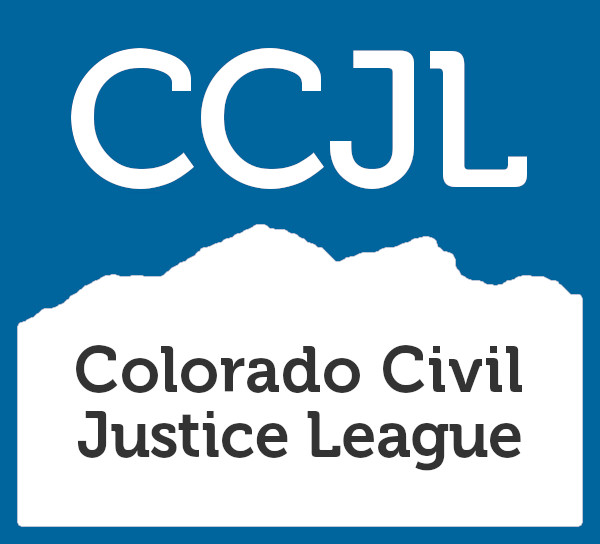The 2018 legislative session produced much political posturing but resulted in comparatively no meaningful policy accomplishments toward reducing litigation in Colorado.
Most significant legislation to pass was re-authorization of the Colorado Civil Rights Division which was due for the periodic “sunset review” to which all regulatory agencies are subject. Because CCRD is the first stop for all employment-related litigation, it is an important mechanism to filter out frivolous claims against businesses. Ordinarily, sunset bills are fairly mundane and characterized by discussions between the regulators and “the regulated” seeking to accomplish the agencies’ mission without undue burden on either party.
Instead, the CCRD reauthorization measure (House Bill 1256, sponsored by Speaker Crisanta Duran, D-Denver, and Sen. Bob Gardner, R-Colorado Springs) became a vehicle for scoring political points. At the center of this gamesmanship was the Civil Rights Commission’s (CRC) handling of the Masterpiece Cakeshop case which is now before the United States Supreme Court.
Democrats, viewing the Commission as a bulwark against unfair discrimination toward racial and sexual minorities, chided Republicans for, at one point, blocking funding of CCRD. Republicans, conversely, seized upon statements made by individual CRC commissioners in the Masterpiece deliberations which have been described by Justice Anthony Kennedy as “neither tolerant nor respectful.” Republicans were also annoyed that Gov. Hickenlooper, in 2017, had appointed a commissioner to fill one of the seats reserved for representatives of the business community who, in their view, had no business credentials and then reappointed that person, albeit in a different position, after her confirmation was rejected by the Senate.
House Democrats then rejected a compromise version of the bill that senators had passed with unanimous support from Democrats and Republicans alike.
Ultimately, another compromise was finally adopted only a few hours before mandatory adjournment at midnight on the final legislative day. That change mandates partisan (3D-3R-1UA) balance on the commission, adds a third seat for business representatives, and bars a governor from re-appointing someone who fails Senate confirmation.
Other bills that passed with bipartisan consensus increased the limit on claims brought in county courts (Senate Bill 56) from $15,000 to $25,000 and resolved inconsistencies between case law and statutory provisions that address damages (Senate Bill 98).
LATE BILLS THREATEN LITIGATION TORRENT
As the legislative session entered its final six weeks, a torrent of “message bills” were introduced in the House – all purporting to address perceived greed and inequity practiced by business. The irony, however, is that in each of these bills, the proposed remedy to “corporate greed” was to create new incentives for personal-injury lawyers to file lawsuits against suspect businesses. Seriously, is the best policy remedy to unleash a hoard of profiteering trial lawyers?
Two bills were aimed at discouraging arbitration – a tool for dispute resolution that often saves time and expense for both consumers and businesses. House Bills 1261 and 1262 proposed to make arbitration essentially meaningless and to burden arbitrators with so much regulation as to drive them out of business. These misguided bills would have taken away the choice of consumers and business to opt for arbitration. The alternative to arbitration? Hiring a lawyer and filing a lawsuit, of course.
Fortunately, through the efforts of Colorado Civil Justice League and our allies in the business community, these bills were shown to be impractical and an intrusion into private rights of contract. Both were defeated but are likely candidates for re-introduction in 2019.
Another bill, HB 1378, would have removed the authority of the Department of Labor and Employment to penalize employers that pay women less than men for performing the same job and instead turned enforcement over to lawsuits filed by trial lawyers. It’s companion, HB 1377, sought to make it illegal to merely ask a prospective hire about his or her salary at previous jobs. The bill would have defined this typical step in salary negotiations to be an “unfair labor practice,” tantamount to refusing to hire someone because of their race or gender. HB 1377 also insisted that every business in Colorado follow a new state-mandated procedure to advertise all pending workplace promotions.
At a time when Colorado’s lawsuit climate has fallen into the bottom one-third in the United States and when Denver ranks 8th nationally for the number of trial lawyer commercials on television, it’s hard to imagine that creating even more litigation is the best remedy to any public policy problem.
